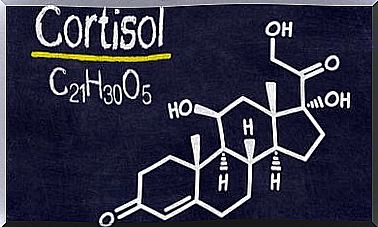Cognitive Remediation Therapy For Obesity

This is a historic period in which society pays more attention than ever to the body and nutrition. Nevertheless, the number of obese or overweight people worldwide is increasing. Dieting and exercise programs often seem to fail in the long run. Cognitive cleansing therapy can be the solution to this problem.
The suitability of this therapy as a basic element in the management of obesity is due to its ability to improve daily function. Current research shows that those who suffer from obesity have difficulty making good decisions in certain areas. For example, they may find it difficult to make good health decisions. This may be because their daily functions are different from those that are not obese.
Experts have not yet identified the source of the daily profile of people with obesity. Nevertheless, there is undoubtedly a two-way link between changes in daily functions and obesity:
- People who are overweight have abnormal metabolisms related to glucose and cellular inflammation. These adversely affect executive functions.
- Similarly, researchers have found that overweight people have higher levels of stress. These are also related to changes in these functions.
- At the same time, the change in daily functions generates more obesity. This is because it makes it more difficult to make optimal decisions about the amount and quality of food they eat. They also have difficulty controlling when eating.
These points require a way of dealing with the problem that goes far beyond conventional methods. Some examples of such conventional methods are dieting and physical exercise. This is where cognitive cleansing therapy can contribute significantly to therapeutic goals.

Cognitive cleansing therapy
Cognitive cleansing therapy includes psychological interventions based on mental exercises. The goal is to improve cognitive strategies, thinking and processing skills. You can achieve this through consistent practice with its techniques.
This therapy stimulates reflection on your own thoughts. Proponents of her case have been working to make the actual transcript of this statement available online. Thus, the main goal is to specifically enhance altered cognitive abilities.
In the case of obesity, people need to direct cognitive improvement towards the improvement of executive functions.
Cognitive cleansing therapy for obesity
Cognitive remediation therapy for obesity (CRT-O) is a treatment that takes place face to face. The goal is to optimize the leadership function. This, they say, can improve people’s thinking patterns regarding eating habits and exercise habits. The goal is to achieve a healthy lifestyle.
CRT-O was designed to provide obese individuals with tools to help them think differently. It consists of a series of mental exercises that improve cognitive strategies. They do this through the practice of information processes and skills.
Research shows that “weight loss” programs that include CRT-O give better results. This means that there is more weight loss, a healthier lifestyle and less overeating. People who engage in this treatment also experience a higher quality of life and a reduction in inflammatory factors.
Various studies suggest that CRT-O can improve weight loss, even when patients are not exercising or on a diet. The results in this case are of course not as good as for people who do. In the rest of the article, we will show you some activities you can use to train your daily functions.
Activities that can improve your inhibitory control
Inhibitory control refers to a person’s ability to inhibit automatic reactions. Thus, it allows them to generate other responses as attention and reasoning change.
Achieving greater inhibitory control requires that you first and foremost avoid intentional behavior. Then you should reflect on the thought that leads to the behavior. The goal is for you to become aware of your own thoughts. Then you can analyze them before going through the action that the thought is encouraging.
Maybe it’s best to give you an example. Say that you have finished eating dinner and that you suddenly get the irresistible urge to eat candy. Before tackling it, you should reflect on the content and meaning of your own thoughts:
- Why do I have to eat candy?
- Is it hunger?
- Could it also be that I did not eat enough carbohydrates?
- Am I trying to control one of my emotions? Which? Does this really help me? Do I have to eliminate something?
- Do I get better after eating the candy?
- What are the possible consequences of this behavior?
- Can I do anything else to feel better?
Interventions to improve working memory
Working memory refers to a person’s ability to remember the necessary things to do a certain action.
Understanding and experience are perhaps the best tools to improve memory. This is why it is important that patients understand the cause of each intervention. They will also participate in strategy development, in addition to experimenting with and adapting to changes in their own lives.

Activities to train cognitive flexibility
The term “cognitive flexibility” refers to a person’s ability to modulate their thoughts and actions in certain situations. It specifically refers to situations that may be new, constantly changing or unexpected.
To practice cognitive flexibility, you must learn to face old situations with new tools. The goal is also to force your brain to develop alternative strategies to reach a specific goal.
Some good examples of this are: Using different routes to get to work or changing the order of the morning routine. You can talk about a work project to an acquaintance in your own words. Meeting new people is also a way to do this. For a more specific activity, try following your eating plan in different environments (work, restaurants, home, etc.).
Another example related to eating may be working on an open eating plan. In this exercise you have to combine types of food.
To train on central consistency
You can define central consistency as the capacity to provide a complete and realistic perspective on a particular situation. During the consultation, it is also a good idea to reason through situations of conflict aloud. You should also keep in mind the context and all related ideas.
Furthermore, it is wise to ask for a brief summary after a complicated detailed reading. This can be an oral or written summary. Therefore, this can help improve the capacity to develop and understand a general idea without going into detail.
Without a doubt, cognitive cleansing therapy is a critical tool for improving your daily thinking skills. This is especially true for people who suffer from obesity. It can even help them control their condition in the long run.









